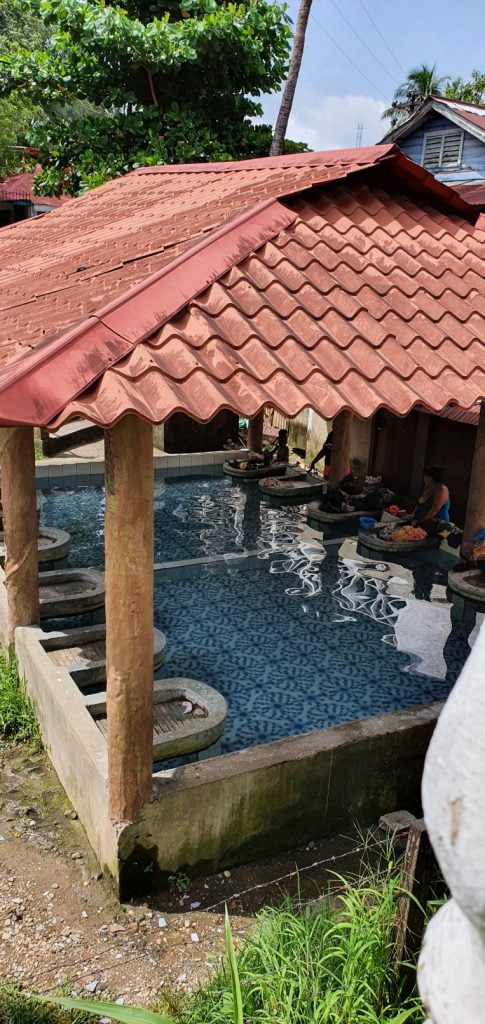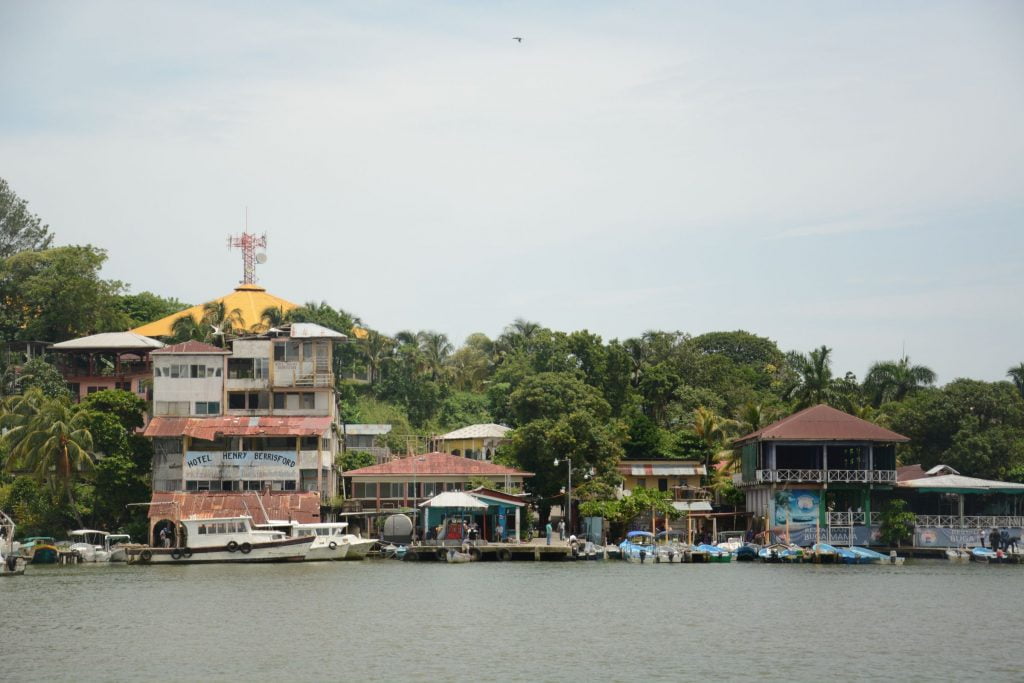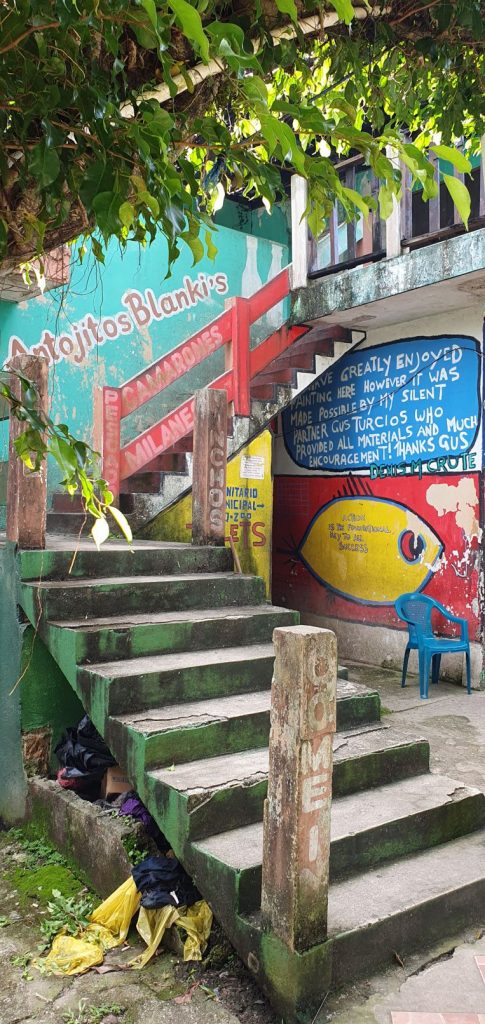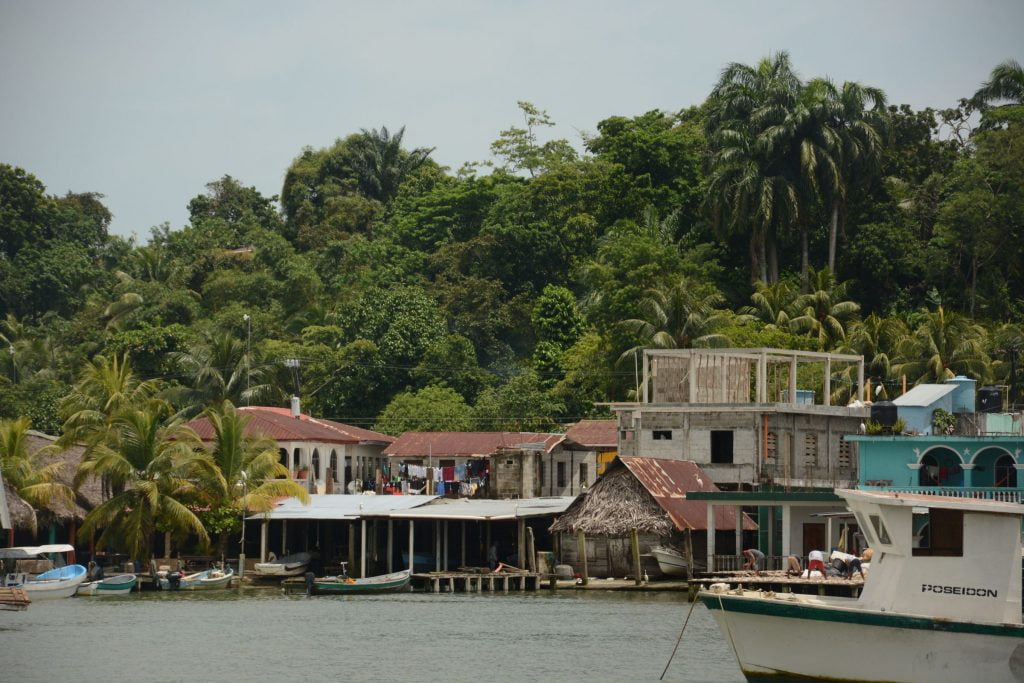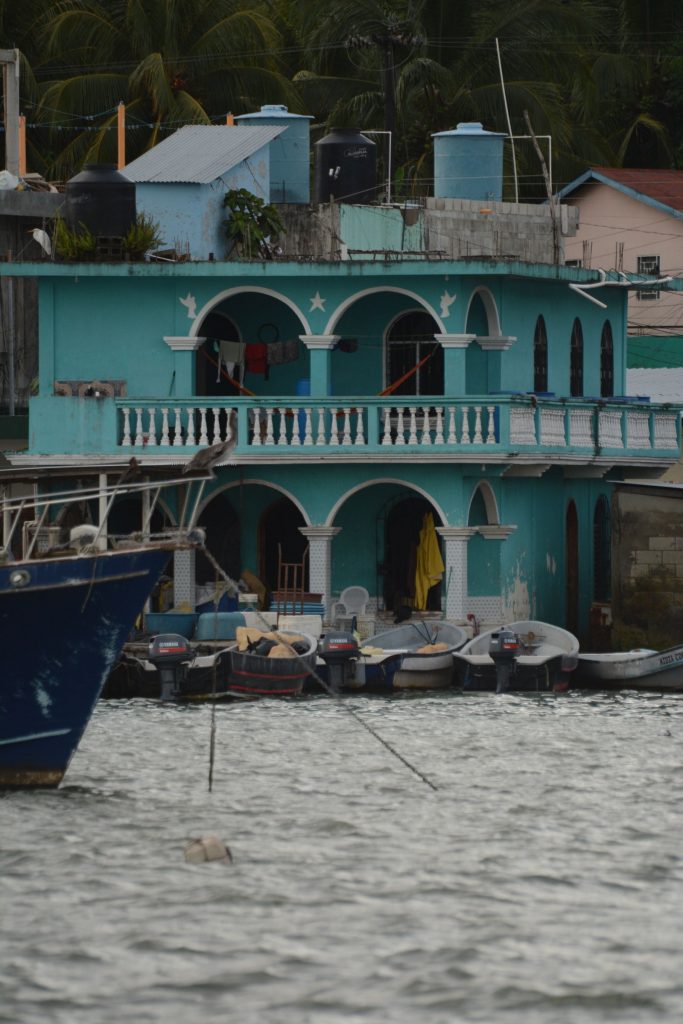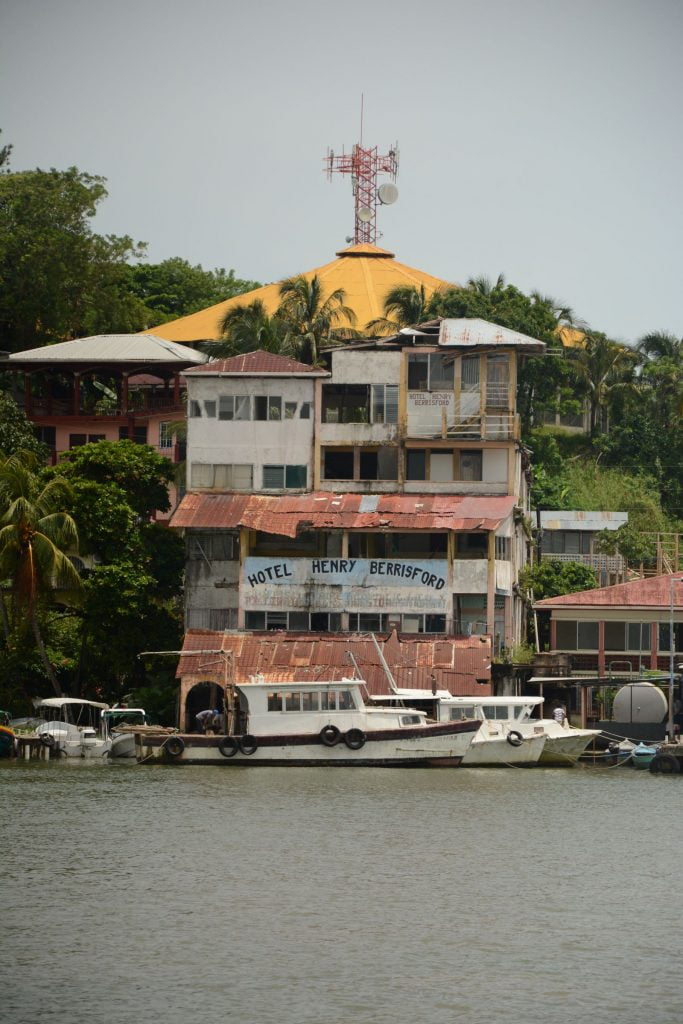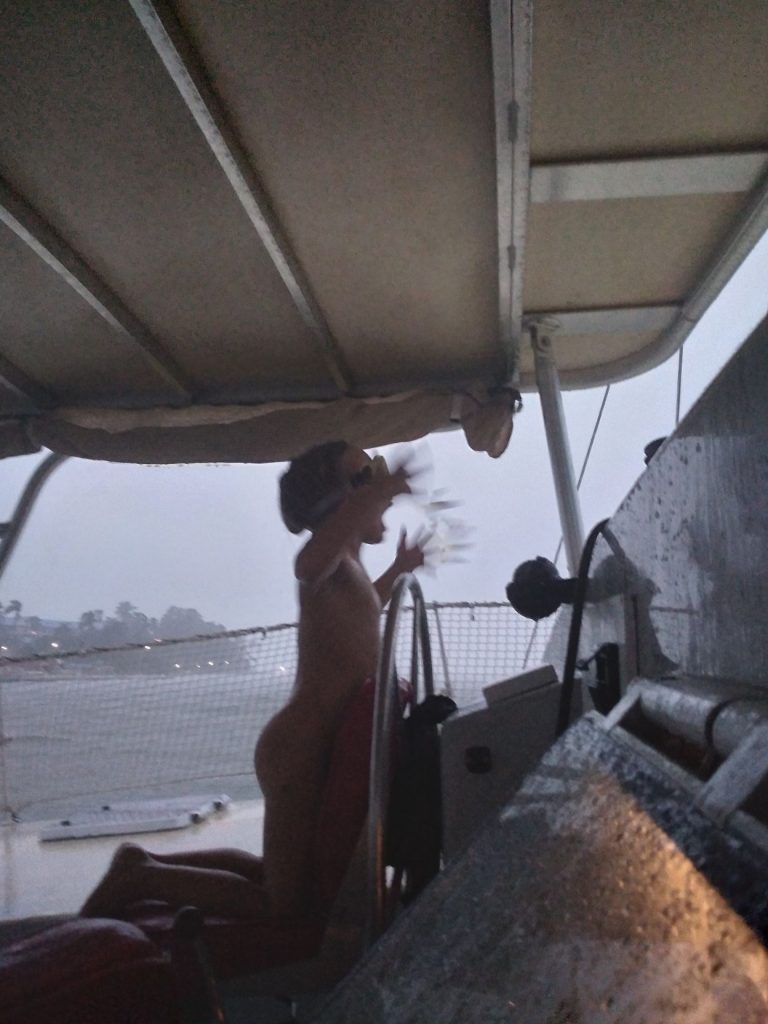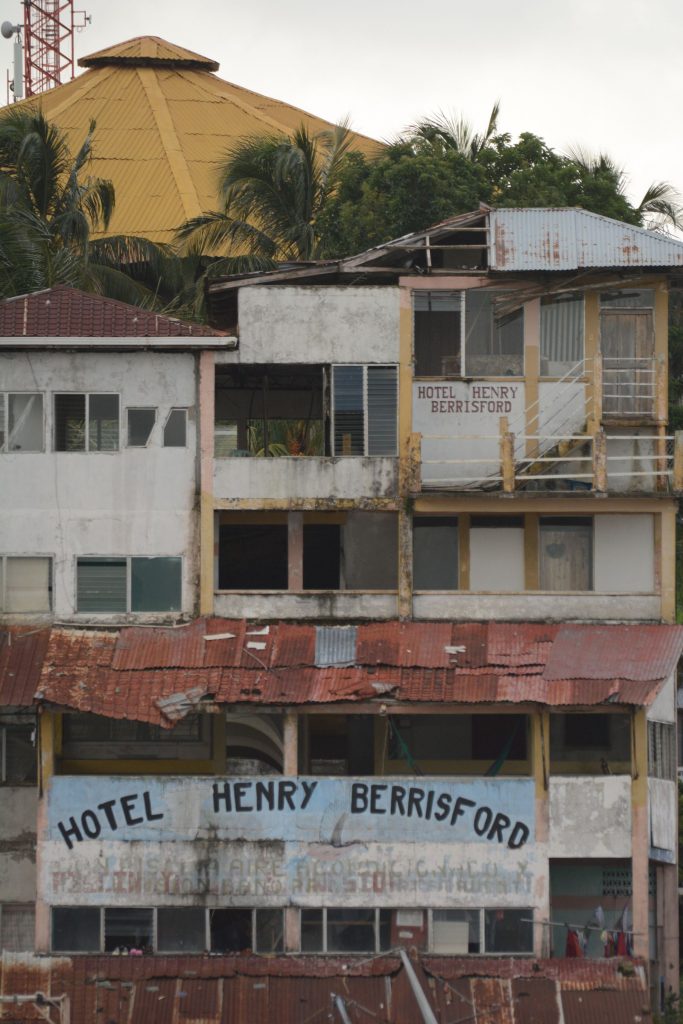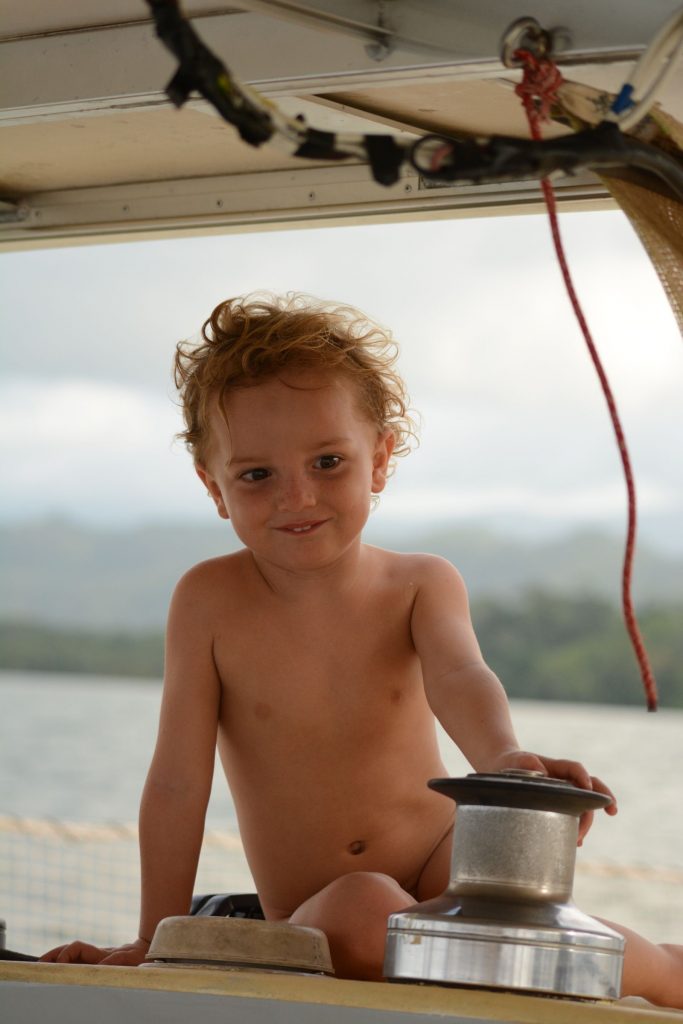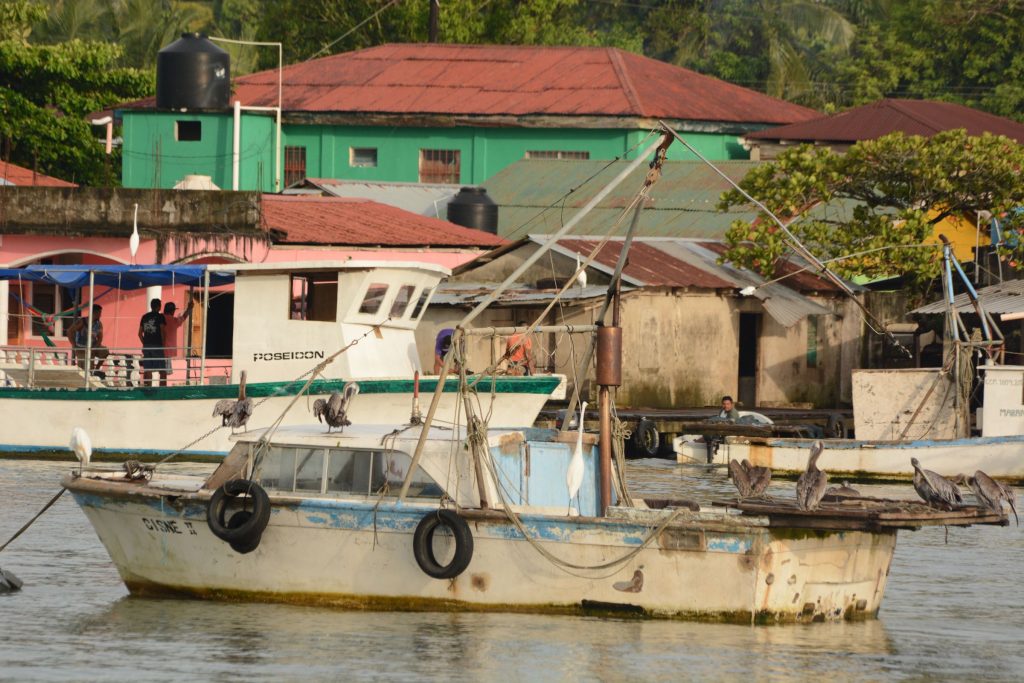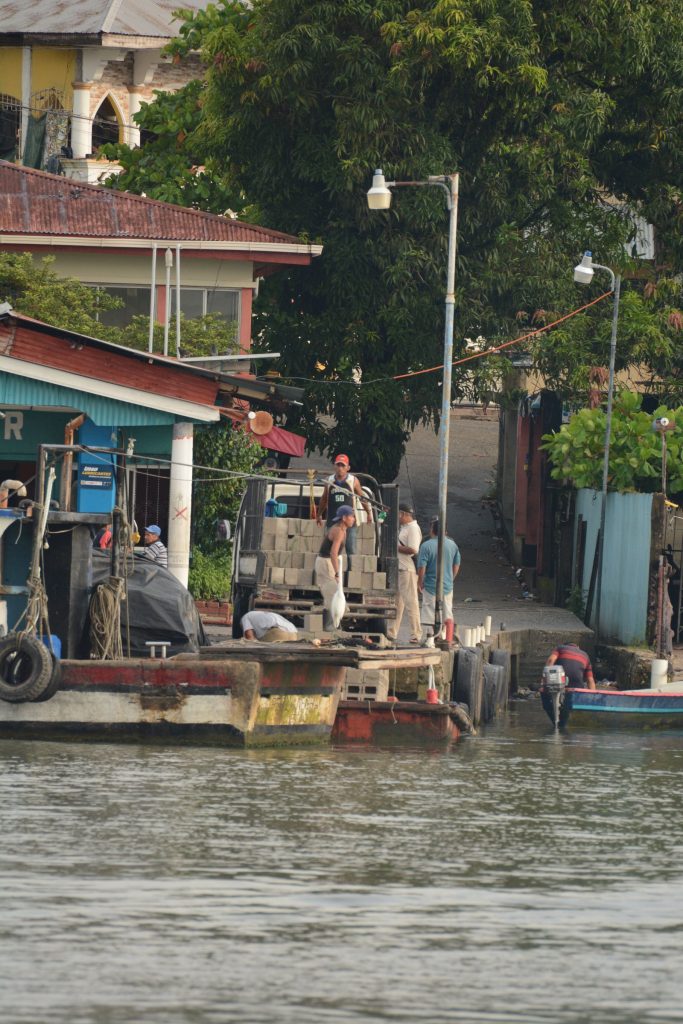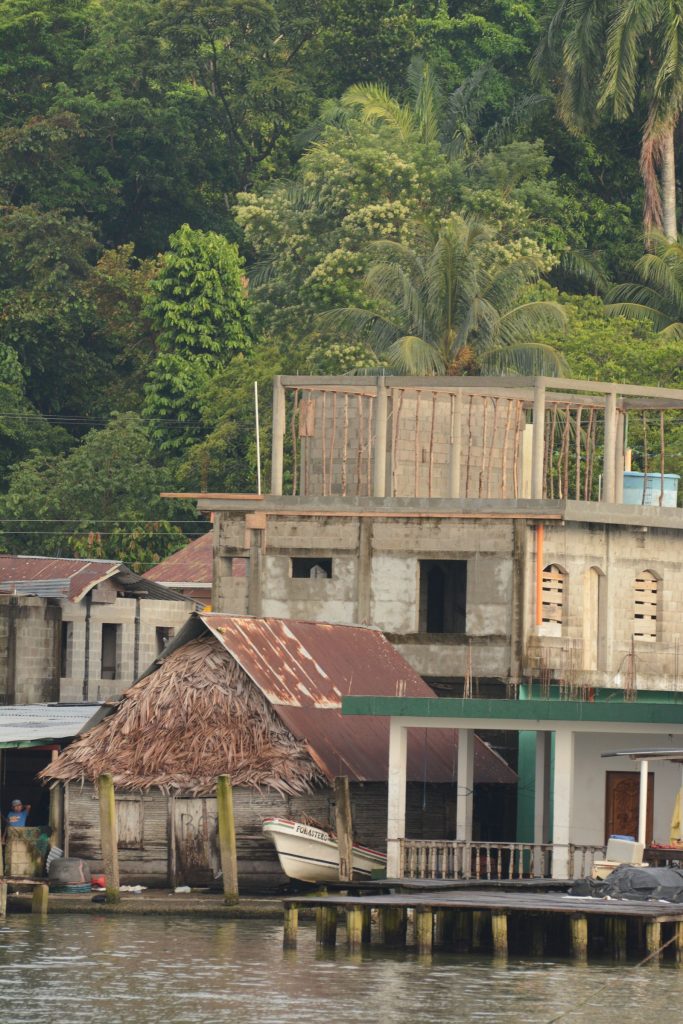Livingston is a town situated at the mouth of the Rio Dulce and the place where cruisers clear in and out of Guatemala with customs and immigration. The morning after we arrived, we motored over to Livingston, which involves navigating a short but narrow and mostly unmarked channel, and traversing a shallow mud/sand bar. Technically, our electronic charts show the route along this channel, but the depth reading was beginning to decrease more than we were comfortable with, so we turned around and followed in a local fishing vessel that looked to have a similar draft to us, and obviously knows the route well.
We radioed into the agent, Raul, who comes highly recommended to smooth clearance. It took a while for us to hear back, but when we were later visited at the boat by customs, immigration, and health, everything was easy. Later, I went with Theo and Hector to the office to finish the paperwork and pay clearance fees. At the dock, a guy was there to offer his help with tying on- for a fee of course. And then offered to take care of the dinghy, for another fee. These guys were a bit of a nuisance, but we hear crime rates in Livingston are high, so perhaps we were right to pay. Walking into town from the dock, we passed a small playground and lively covered sports court that was being used by local musicians. It was easy to find somewhere to buy a couple of local SIMs and get some fresh fruit and veg so that we could spend a few days anchored in El Golfete before heading to the marina.
The boys were excited to get their first view of Guatemalan tuk-tuks, which are smaller and more enclosed than those in the Dominican Republic, and Arthur was fascinated by the varied fishing boats that moored in the bay. We also enjoyed watching the men loading and unloading boats of building materials and food supplies at the shore. It would have been good to have more time to explore Livingston, but we had heard it isn’t somewhere to leave the boat unattended if we all went ashore- things have a habit of going missing, and there have been boardings at night even on occupied boats.
